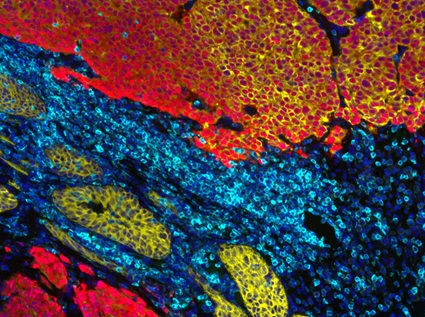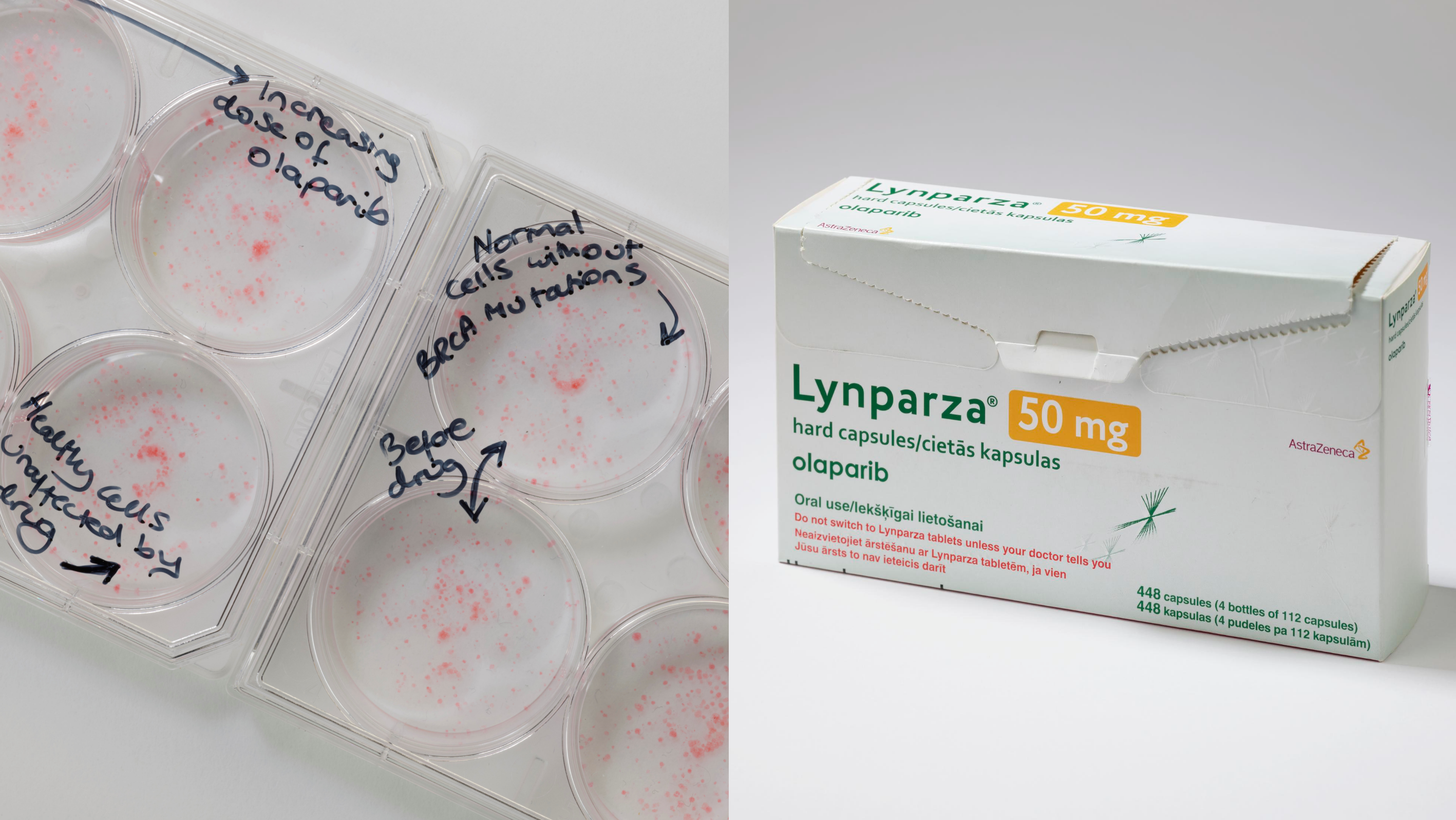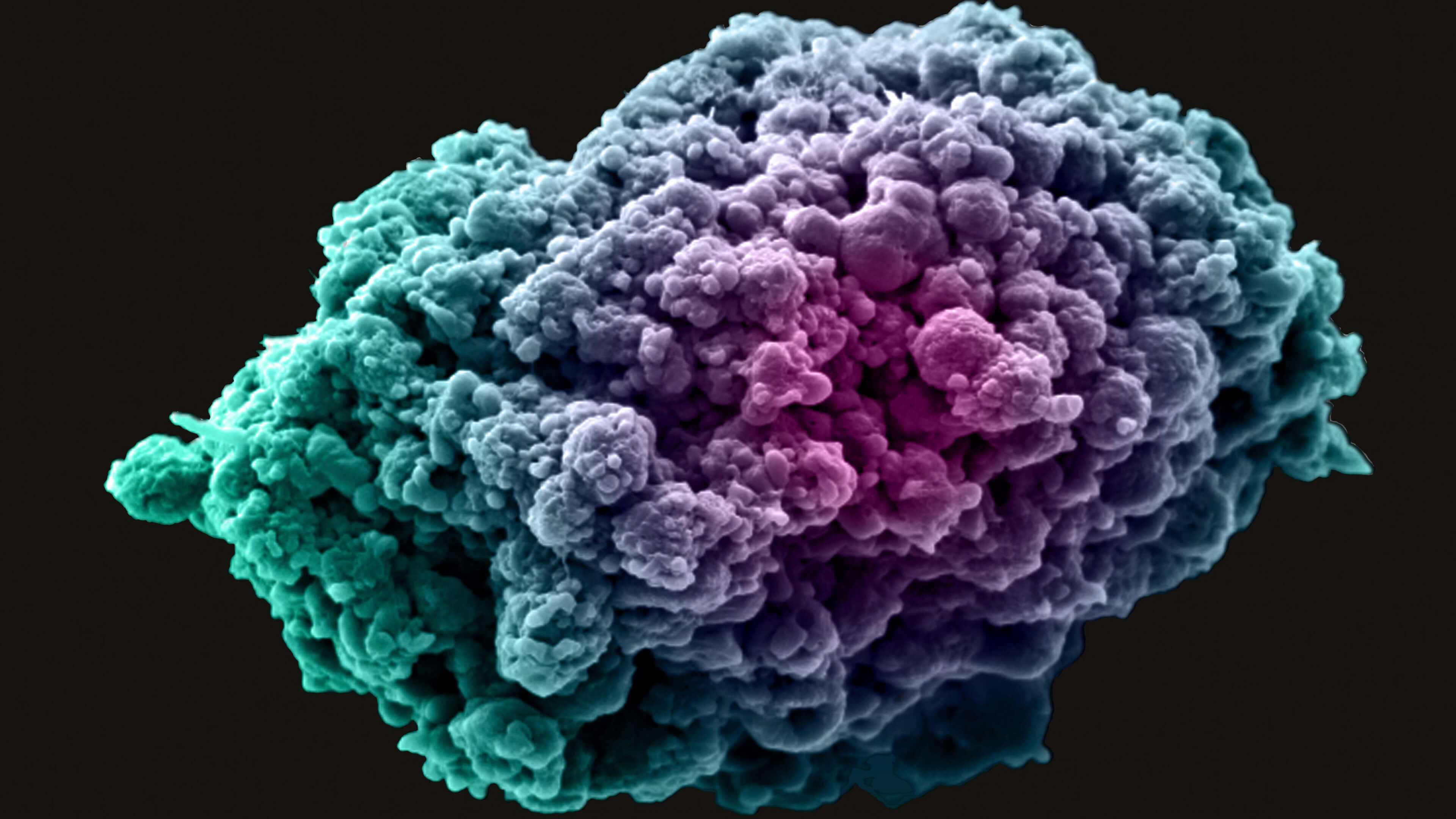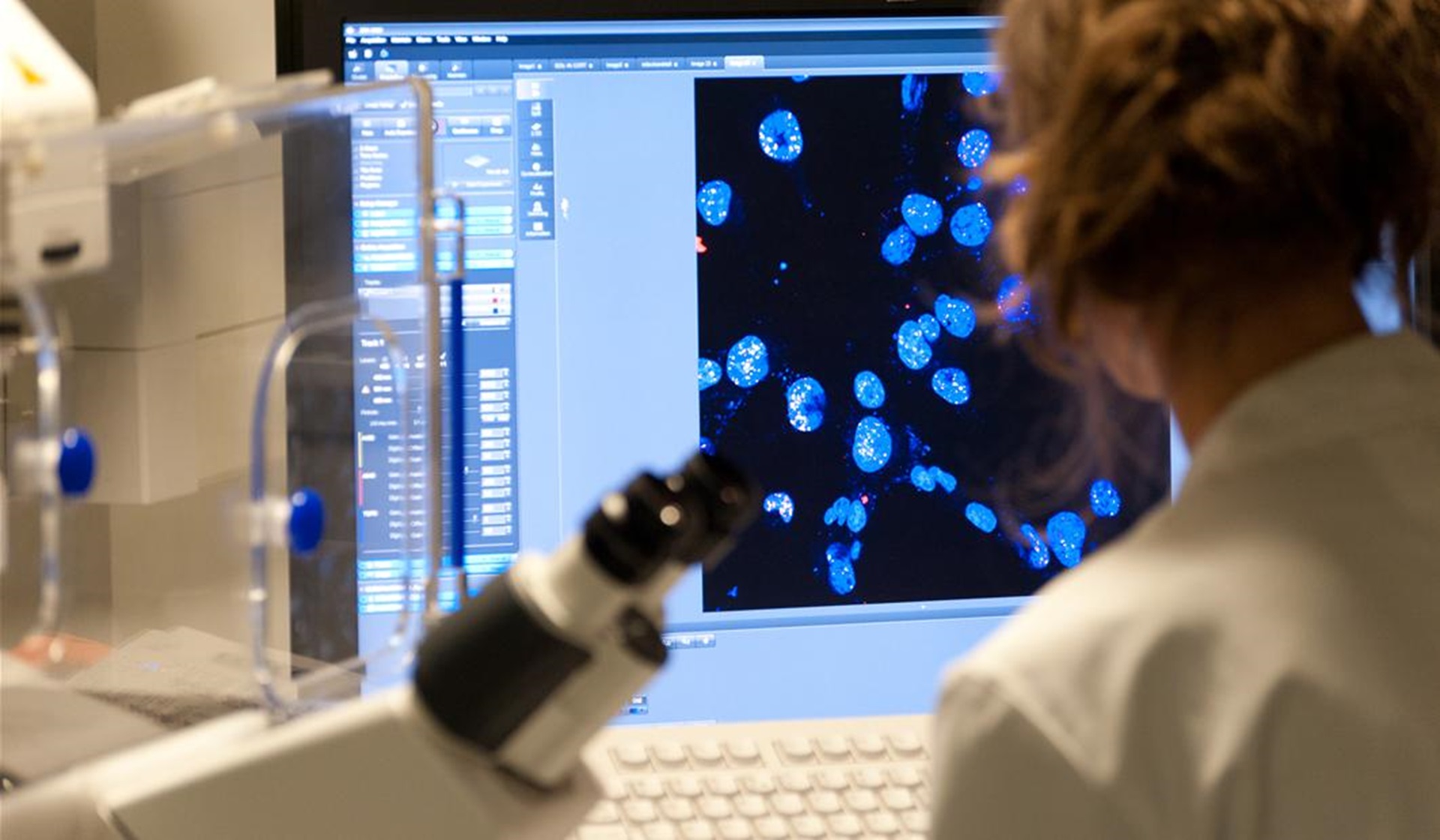Centre for Genome Stability
at the ICR and The Royal Marsden
Centre for Genome Stability (CGS) is a unique multidisciplinary programme bringing together experts from across the ICR and The Royal Marsden who work on DNA-damage response and genome instability research with clinical experts in the treatment of cancer.
How we research at this centre
Our world-leading centre of excellence aims to understand genetic, epigenetic and proteomic changes to genomic stability in the development of cancer in order to develop biomarkers and therapeutic targets for improved cancer treatment. This will allow us to apply multidisciplinary approaches to address important research questions, thus accelerating discoveries into the causes of tumorigenesis and delivering major clinical impacts, both nationally and internationally.
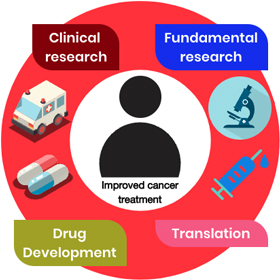
We aim to harness the breadth of expertise in genomic stability at the ICR to develop new and better therapies against cancer to make the most meaningful impact in clinics.
The centre will establish a single-domain antibody screening facility to generate DNA-repair related biomarker detection and intracellular antibody protein perturbation tools.
The Centre's main themes are as follows:
Molecular Mechanisms of Genome Stability Maintenance
Maintenance of genome stability is accomplished throughout the cell cycle by a complex network of proteins referred to as the DNA-damage response (DDR) pathways. Mutations in DDR factors are associated with elevated cancer predisposition. Understanding this will allow us to target tumour-specific DDR dependencies for improved cancer treatments.
Understanding Replication Stress Responses
Cells control DNA replication with the highest possible fidelity in order to prevent catastrophic changes to their genome. Understanding how DNA replication and repair machineries function and how these processes differ in cancer cells could provide new prognostic tools and therapeutic targets.
Integrative Systems Biology of Cancer and Ageing
We will develop tools to interrogate large data sets of genetic, genomic and proteomic information to generate hypotheses for experimental analysis, with the ultimate goal of understanding the changes that occur to the genomes and proteomes of cells as they transition to a cancerous or aged state.
Genome Instability and Cancer Therapeutics
New dependencies within the DDR pathways may represent targetable vulnerabilities in cancer cells, with a major focus on synthetic-lethal interactions and over-reliance on DDR pathways allowing for selective killing of cancer cells.
We want to accelerate the translation and delivery of our research.
As one of the world’s most influential cancer research institutes, we discover more new cancer drugs than any other academic centre in the world. We have made game-changing discoveries that revolutionised the way cancer is studied and treated.
Work with us in the Centre for Genome Stability to develop and commercialise our novel discoveries to defeat cancer. Contact us at [email protected] to work with us.
Internal collaborative opportunities
The Centre supports activities to bring together genome stability expertise across the ICR and The Royal Marsden in order to support and develop new collaborative opportunities.
Centre short talk series
Participate in our series of short talks and hear from colleagues. Next event is expected to take place in October 2024. Further details TBC.
Single-domain Antibody Facility
We have established our Single-domain Antibody Facility with ongoing pilot studies. There will be a call for screening projects.
Requirements to access the facility
Protein/antigen concentration of 500µg – 1mg, with objective of antibody for advice on tag (i.e. denatured/native form of protein). Final validation to be undertaken by research teams due to limited capacity within the facility. If you are interested to find out more, please contact Dr Divya Duscharla at [email protected].
Clinical Research Fellowships
Colleagues across the ICR and The Royal Marsden can apply to appoint Clinical Research Fellows (3-year PhD), addressing a reverse translation topic (bed-to-benchside) and involving clinical and fundamental research labs.
We are now accepting outline project proposals from potential supervisors for the next round of Clinical Research Fellowships for 2025/26 entry.
Please contact [email protected] to express your interest or if you have any questions.
Our researchers at this centre
Fundamental research
Professor Laurence Pearl is Head of the Division of Structural Biology at the ICR and also Professor of Structural Biology in the Genome Damage and Stability Centre at the University of Sussex.
He read Biochemistry at University College London (UCL) and then obtained MSc and PhD degrees in the Department of Crystallography at Birkbeck College, for structural studies of aspratyl proteinases under the supervision of Sir Tom Blundell.
Following Postdoctoral research positions at Birkbeck College and the ICR in Sutton, Surrey, he returned to UCL as Lecturer in Biochemistry in 1989, becoming Reader and then Professor of Structural Biology in 1996.
In 1999 he rejoined the ICR to chair the new Division of Structural Biology (jointly with David Barford) at the Chester Beatty Laboratories in Chelsea.
In 2009 he was appointed Head of the new School of Life Sciences at the University of Sussex, relocating his laboratory to the MRC Genome Damage and Stability Centre, where he holds the position of Professor of Structural Biology. Under his leadership, Sussex rose to rank 10th overall in the UK for Biological Sciences, and 8th for research outputs in the 2014 Research Excellence Framework (REF), placing it on par with Cambridge and ahead of the majority of Russell Group Universities.
He stepped down as Head of School after eight years in the role, and is now fully focused on research, combining roles at ICR and Sussex.
His research focuses on understanding the structural basis of the recognition, repair and signaling of DNA damage and the function of molecular chaperones, and translating this basic research for the discovery of new drugs for the treatment of cancer and other diseases.
He is a Fellow of the Royal Society (FRS), a Fellow of the Academy of Medical Sciences (FMedSci) and an elected member of the European Molecular Biology Organisation (EMBO) and the Academia Europeae. In 2011 he was the recipient of an Inaugral Wellcome Trust Senior Investigator Award and in 2013 shared the CR-UK Translational Cancer Research Prize with Paul Workman.
He is a founder and the Chief Scientific Officer of Domainex Ltd, a contract research company that was named UK Bio-entrepreneurial Company of the Year by the Department for Trade and Industry (DTI) in 2007. He was awarded the 2018 Novartis Medal and Prize by The Biochemical Society.
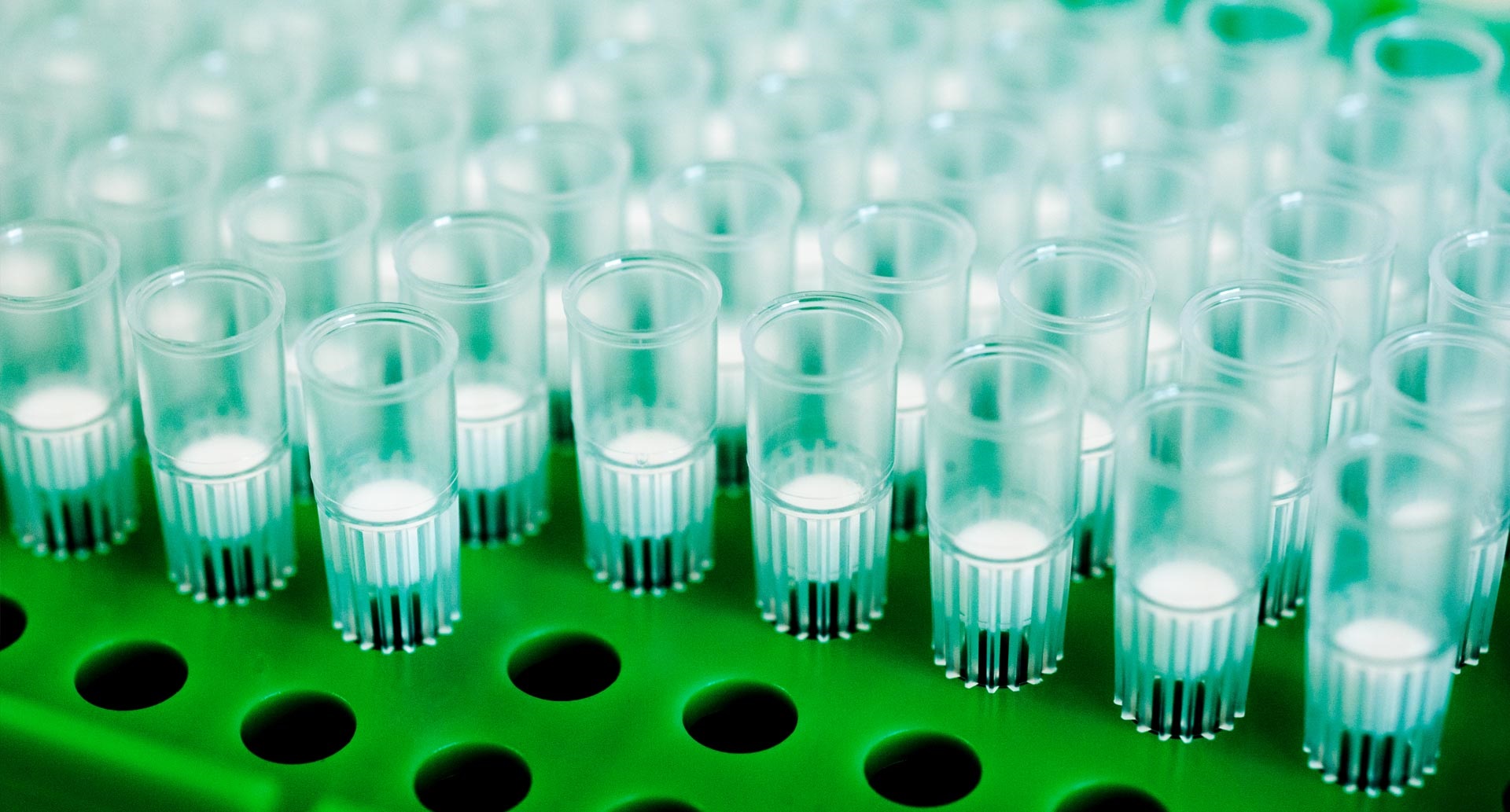
.png?sfvrsn=38d02ad6_1)
